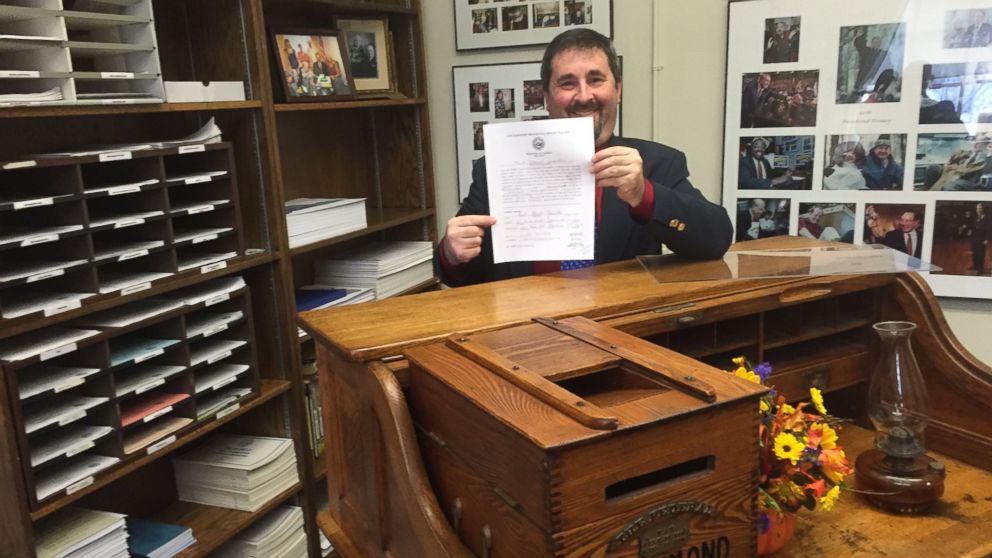Meet the 1st Person to File for President in New Hampshire, and It’s Not Who You Think

CONCORD, N.H. -- When Martin O’Malley walked into the New Hampshire statehouse at 8:15 a.m. Wednesday to file as an official candidate for U.S. president, he was in a good mood.
“I wanted to be the first Democrat to file,” he said.
He wasn’t.
Just a few minutes earlier, Mark Stewart of Hartford, Connecticut, had walked into the New Hampshire Secretary of State’s office with a check for $1,000, the state’s paltry filing fee.
“Secretary Gardner said, ‘Well, you’re first in. Why don’t you sign this,” Stewart said.
Standing at the desk that would soon be occupied by the likes of O’Malley, Donald Trump and Marco Rubio, he filled out a short declaration of candidacy form.
That’s when Gardner told him, “This is the 100th [anniversary of the] New Hampshire primary. So you just kind of made history.”
Stewart is one of dozens of lesser-known candidates likely to enter the race during New Hampshire’s filing period this month. Unlike most states, where ballots include a short list of big names, voters in 2012 could choose between 30 Republicans and 14 Democrats, including President Obama. One challenger included Vermin Supreme, a man who has filed three straight cycles, wearing a boot on his head.
Some years, Secretary Gardner told ABC News, there’s a race to receive the honor of being first to file at 8 o’clock in the morning.
“The doors are locked until 7:30, but some people hide in the building overnight,” Gardner said.
There was no such line this year, leaving a surprised Stewart in front of a hoard of journalists waiting for O’Malley.
“I got here at 8:02,” he said sheepishly. “We knew that Mr. O’Malley was scheduled to be here at 8:15. He was late. I was on time.”
Like many fringe candidates, Stewart is running to make a point.
“I call myself an IED,” he said. “An Increasingly Embarrassed Democrat.”
He considers himself a libertarian, and hopes to overturn President Obama's signature piece of legislation, the Affordable Care Act. Along with his check, he brought stacks of $2 bills; he handed them to passersby, asking them to "tell two friends" about his mission.
With a small group of supporters, he plans to spread his message to a select group of states: New Hampshire and South Carolina, for starters.
“California is what I really have my eye on,” he told ABC News. “I think I could win.”
He’ll have a long way to go. Most states aren’t as accommodating to lesser-known White House hopefuls. Filing fees are often more expensive – South Carolina’s is $40,000, for instance – and candidates are required to produce thousands of signatures to support their bids.
In many states, the decision about whether to allow a name on a ballot rests with the secretary of state.
Lucky for people like Stewart, William Gardner is easily convinced.
“He said, ‘Oh yeah, let’s get going. Do you have a check?’” Stewart recalled.
Eyes wide, he compared it to his home state of Connecticut. “The process of filing for president in New Hampshire is easier than filing to run for school board,” Stewart said.
Meanwhile, O’Malley can take consolation in being the second Democrat to file for the Feb. 9 primary.



